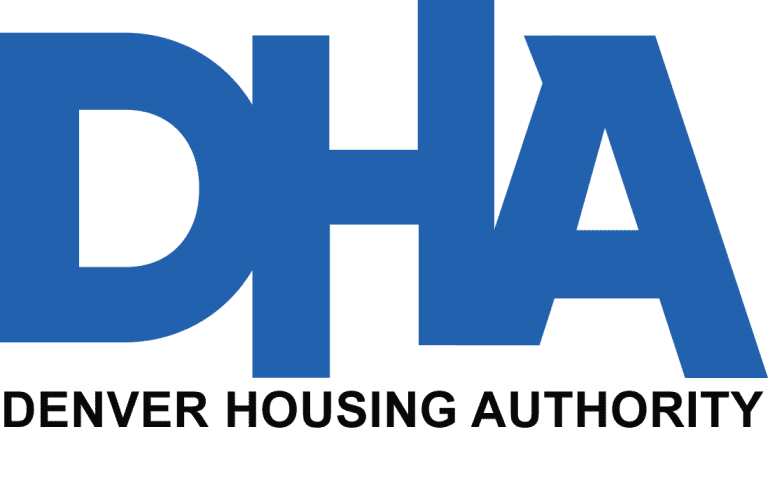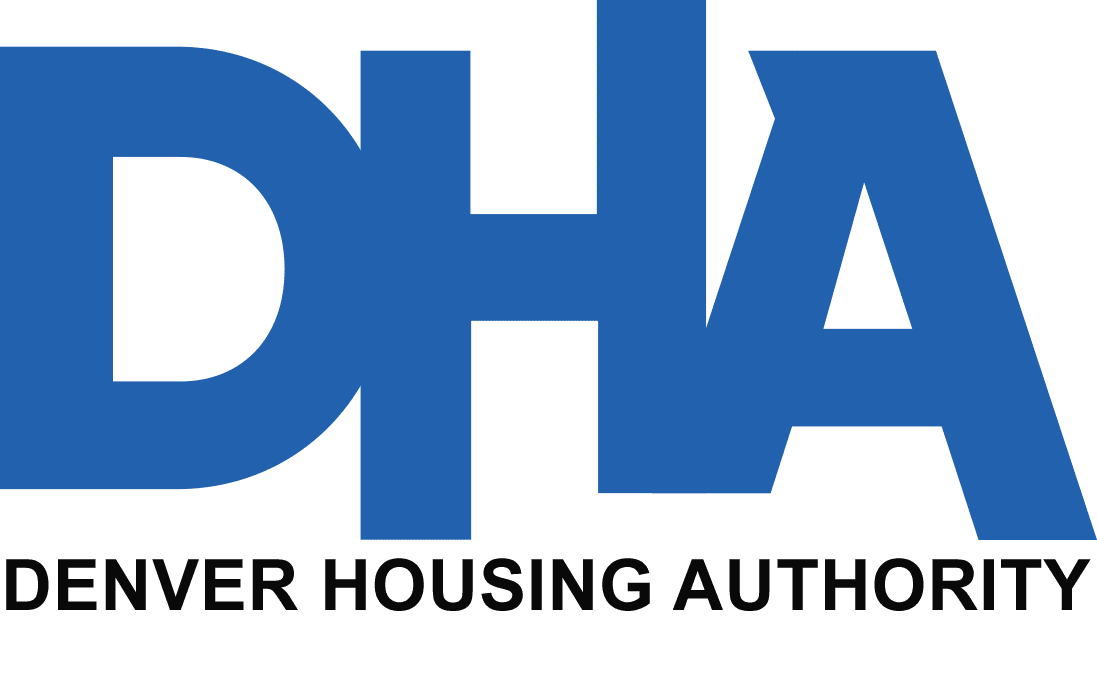

On lots at the corner of South Pecos Street and West Alameda Avenue sits a shuttered building with a sign that reads “Best Car Buys.” Behind these parcels, another vacant lot, surrounded by a chainlink fence at 1373 W. Nevada Place, faces a row of residential homes.
They’re not much to look at, but in real estate, where the mantra is location, location, location, the Denver Housing Authority saw potential for an affordable housing development for families. Based on geographic information system modeling data from its broker at NAI Shames Makovsky, this location scored high on key metrics: access to public transit, groceries and schools for children of all ages. In March 2020, using funds from the DHA Delivers for Denver (D3) Bond Program, of which $62 million supports DHA’s direct development and $62.5 million buys land for supportive housing, DHA bought these lots for $4 million.
The D3 Bond issuance that made this acquisition possible is a ground-breaker. The largest single fundraiser in DHA’s history, the initiative raised more than $120 million in intergovernmental agreement bonds to support Denver’s affordable housing goals, backed by city property tax allocations. About half of the money will accelerate existing DHA projects, conflating 10 years of development into five years. The other half supports land purchases like those at Pecos and Alameda Avenue, establishing a supportive housing pipeline of new projects for the city and county of Denver.
“The bond allows DHA to continue providing affordable housing while fast-tracking ongoing projects like our Sun Valley redevelopment,” said DHA Senior Development Manager Haley Jordahl. “It also advances a major city priority to establish a pipeline of supportive housing. When all the shovels are put away, Denver will have nearly 2,500 new affordable housing units, 600 of which will support people exiting homelessness. This includes 1,300 units by DHA and 1,200 from the permanent supportive housing land acquisition program.”
Activating the lots as supportive housing on that corner in southwest Denver will require dozens of public, private and neighborhood partners, reams of paperwork and millions of dollars to come together like threads to repair a rent in the social fabric. For DHA to allocate these lots, it started with neighborhood meetings and discussions with its Supportive Housing Advisory Committee, a group comprised of five city, state and nonprofit entities, which identified the city’s desperate need for supportive family housing. Last November, following a competitive request for qualifications process, DHA and the city and county of Denver awarded Warren Village a long-term ground lease to these parcels to build supportive housing for the city’s most vulnerable families.
“This partnership is the result of a lot of innovation on the part of the city and county of Denver and DHA to reimagine funding mechanisms for affordable housing” said David Nisivoccia, executive director of Denver Housing Authority. “It’s unique, too, in that it aligns city goals with DHA’s mission – and the mission of Warren Village, which has been helping families succeed in Denver for almost 50 years.”
In late 2024, after a lengthy process of fundraising, design, permitting and construction, these tired city lots will teem with families, social workers, educators, mental health workers and teachers at Warren Village 3, a new two-building campus for this long-standing Denver nonprofit, which will offer housing and services to 74 single parent families experiencing chronic housing instability or homelessness. The Women’s Bean Project, which purchased a portion of this property from DHA, will build a brand-new facility next door for its transitional employment program and serve as a potential training partner for Warren Village and a source of clients.
“This isn’t just housing,” said Warren Village CEO Ethan Hemming, indicating that the “village” element in Warren Village means partnerships. “There will be a licensed early learning center for children, and for the adults, the focus will be on career advancement, training and stabilization.”
Enter additional partners. Warren Village 3 will house single-parent families, most of which have experienced homelessness, as well as partner organizations that will help Warren Village provide wraparound services designed to help both the children and adults interrupt the cycle of poverty. To that end, Warren Village is looking to work with the Community College of Denver, which can provide workforce training and academic classes on site. The Mental Health Center of Denver will have a presence to address mental health issues, while the University of Colorado School of Medicine will be on site to assist families with their physical health. Each family will have a coach to help parents set and achieve their goals. Other partners may include United Way and the University of Denver Center for Housing and Homelessness Research.
The idea is to mitigate burdensome worries such as child care, oppressive housing costs, and mental and physical health issues so families can focus on goals toward achieving financial stability. “We’re the anchor,” Hemming explained, “but we’re bringing people in with us.”
On the building and financing side, other partnerships and requirements come to bear. There are loans to secure, construction grants to apply for, and vouchers to obtain that will subsidize the affordable housing rental units. Warren Village, which is working with Urban Ventures and Rivet as development partners, will take the crucial next step this summer, when it applies to the Colorado Housing and Finance Authority for the low-income housing tax credits to help fund for the project. These tax credits are awarded to developers who in turn sell these credits to investors to raise money for the project.
But applying for LIHTC credits is no small matter. Warren Village and its partners must submit a general contractor contract, site plans, floor plans, architectural certification, financing assurances for what LIHTC credits don’t cover, budgets and so much more. LIHTC credits are awarded in November.
In addition to securing the critical LIHTC credits, there are countless details and partners that still need to come together to re-house the 74 families Warren Village 3 will serve. If the LIHTC credits come through and a brand-new campus begins to rise with courtyards and a playground, it will be because a lot of partners joined forces to reimagine the financing of affordable housing and what’s possible on urban infill lots with access to transportation, food and schools. If the LIHTC credits aren’t awarded, Warren Village will apply again. If they are granted, Hemming said, “We are going to move as quickly as we can for those 74 families so they can have a brighter future with more hope.”
To view original article, please click here.

